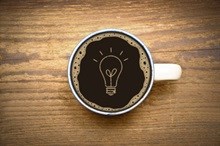
Top stories






More news


Marketing & Media
Ads are coming to AI. Does that really have to be such a bad thing?














Mariska van Aswegen, spokesperson of allergy medicine provider, Pharma Dynamics says with final exams looming, the next month or so is going to be particularly stressful for students.
"Whether intentional or not, many students tend to leave studying for finals till the 11th hour, resulting in many nocturnal hours spent slumped over a desk in last-minute preparation. This is when stimulants such as coffee and energy drinks become the go-to in order to help students stay awake and alert," she says.
Van Aswegen explains that a caffeine allergy can be deceptive. "The allergic person may experience typical symptoms associated with an allergy which includes sneezing, difficulty breathing, hives an itchy or swollen mouth and tongue, heart palpitations, dizziness or eczema, but these physical cues are often accompanied by psychiatric responses. Depending on how much caffeine is consumed, symptoms of caffeine allergy - also termed by some as a cerebral allergy - can range from mild to severe, which include lack of concentration and comprehension, aggression, hyperactivity and disorganised thought processes.
Although many people drink coffee, energy drinks and cola, which contain large doses of caffeine, some may not realise that they are actually allergic to it. Symptoms may vary depending on how strong a person's allergy to caffeine is.
"By drinking three caffeinated energy drinks a day, students could be ingesting more than 500mg of caffeine or 1.5 times the amount of caffeine that is regarded as safe for adult consumption. Two to three cups of coffee (300mg of caffeine) a day is considered safe and teenagers should limit themselves to no more than 100mg of caffeine a day," says van Aswegen.